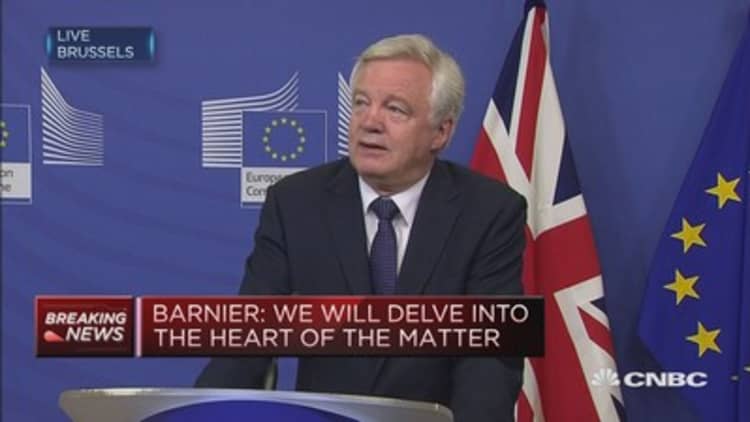The free movement of people between the U.K. and the European Union will come to an end in March 2019 after the completion of Brexit, a U.K. minister said on Thursday.
Immigration Minister Brandon Lewis said that the government would introduce a "new system of immigration" by the time the U.K. left the EU, which is estimated to be in two years' time.
"Free movement of labor ends when we leave the European Union in the spring of 2019. I'll be very clear about that," he told BBC Radio 4's Today program on Thursday.
"Obviously there's a period of negotiation we're undergoing with the European Union at the moment, but we're very clear that free movement ends – it's part of the four key principles of the European Union – when we leave."
'Implementation period'
Lewis appeared to contradict U.K. Home Secretary Amber Rudd, who announced an "implementation period" for when the country leaves the monetary union, to ensure there is no "cliff edge" for businesses and employers.
Rudd commissioned a study of the costs and benefits of European immigrants to the U.K. economy to come from the country's independent Migration Advisory Committee.
"We must keep attracting the brightest and best migrants from around the world," she wrote in an article for the Financial Times newspaper.
"We must implement a new immigration system after we leave the EU which gives us control and works in all of our interests."
Position differentiates government from opposition
The immigration minister noted that this position differentiated the ruling Conservative Party from others, saying that the opposition Labor Party wanted the country to remain a member of the single market and maintain freedom of movement.
"We're very clear that the British people, when they voted in that referendum, wanted – part of the key issue as many people saw it – having control of our borders, but at the same time I do believe it's right," Lewis said.
"The people do understand, we want our businesses to be able to have a proper process, and to have an ability to bring in the bright and the best, we have a good track record of doing that in this country and we want to continue that."
The minister's remark followed comments made in The Times of London newspaper, in which he said the new immigration system "must and will allow the government to take back control of who is coming here from Europe and help us bring down net migration to sustainable levels".
What do U.K. businesses want?
The Confederation of British Industry (CBI) has said that it wants European workers' rights to be protected as part of Rudd's examination into the benefits of EU migrants to the British economy.
"Workers from across Europe strengthen our businesses and help our public services run more smoothly – any new migration system should protect these benefits while restoring public confidence," Josh Hardie, deputy director general at CBI, said in a statement on Thursday.

"Asking the Migration Advisory Committee to set out the facts is a sensible first step."
Meanwhile, the British Chambers of Commerce welcomed the home secretary's decision to evaluate the effects of migration on the U.K. economy.
"Amber Rudd has given EU nationals and their employers some much-needed reassurance, by signalling that any significant changes to the immigration rules for EU citizens will take place in an orderly fashion over time," Adam Marshall, BCC director general, said in a statement on Thursday.
"Businesses need clear information to support their existing employees - and to know, right now, who they can hire with confidence over the coming years."


